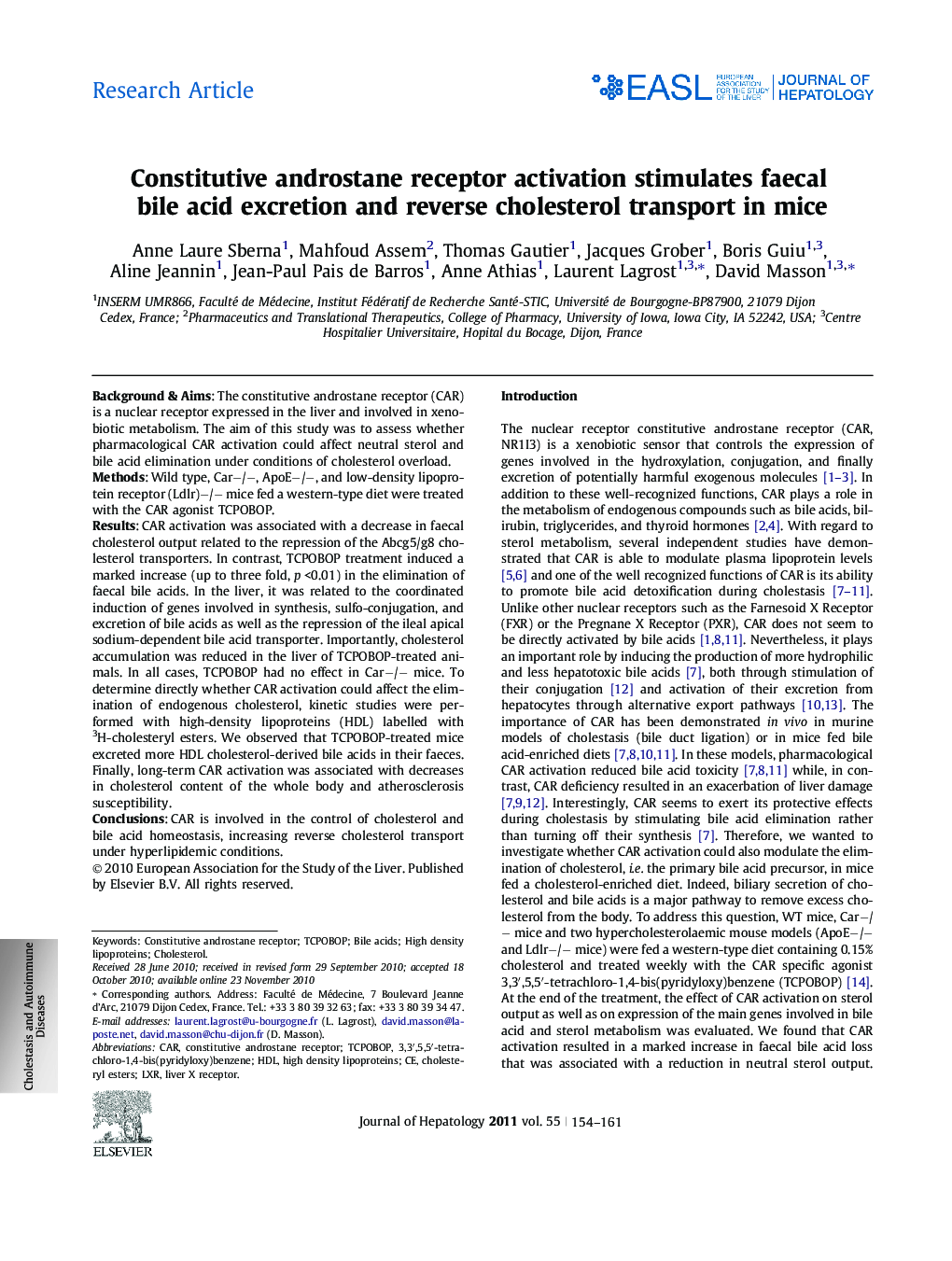| Article ID | Journal | Published Year | Pages | File Type |
|---|---|---|---|---|
| 6108718 | Journal of Hepatology | 2011 | 8 Pages |
Background & AimsThe constitutive androstane receptor (CAR) is a nuclear receptor expressed in the liver and involved in xenobiotic metabolism. The aim of this study was to assess whether pharmacological CAR activation could affect neutral sterol and bile acid elimination under conditions of cholesterol overload.MethodsWild type, Carâ/â, ApoEâ/â, and low-density lipoprotein receptor (Ldlr)â/â mice fed a western-type diet were treated with the CAR agonist TCPOBOP.ResultsCAR activation was associated with a decrease in faecal cholesterol output related to the repression of the Abcg5/g8 cholesterol transporters. In contrast, TCPOBOP treatment induced a marked increase (up to three fold, p <0.01) in the elimination of faecal bile acids. In the liver, it was related to the coordinated induction of genes involved in synthesis, sulfo-conjugation, and excretion of bile acids as well as the repression of the ileal apical sodium-dependent bile acid transporter. Importantly, cholesterol accumulation was reduced in the liver of TCPOBOP-treated animals. In all cases, TCPOBOP had no effect in Carâ/â mice. To determine directly whether CAR activation could affect the elimination of endogenous cholesterol, kinetic studies were performed with high-density lipoproteins (HDL) labelled with 3H-cholesteryl esters. We observed that TCPOBOP-treated mice excreted more HDL cholesterol-derived bile acids in their faeces. Finally, long-term CAR activation was associated with decreases in cholesterol content of the whole body and atherosclerosis susceptibility.ConclusionsCAR is involved in the control of cholesterol and bile acid homeostasis, increasing reverse cholesterol transport under hyperlipidemic conditions.
